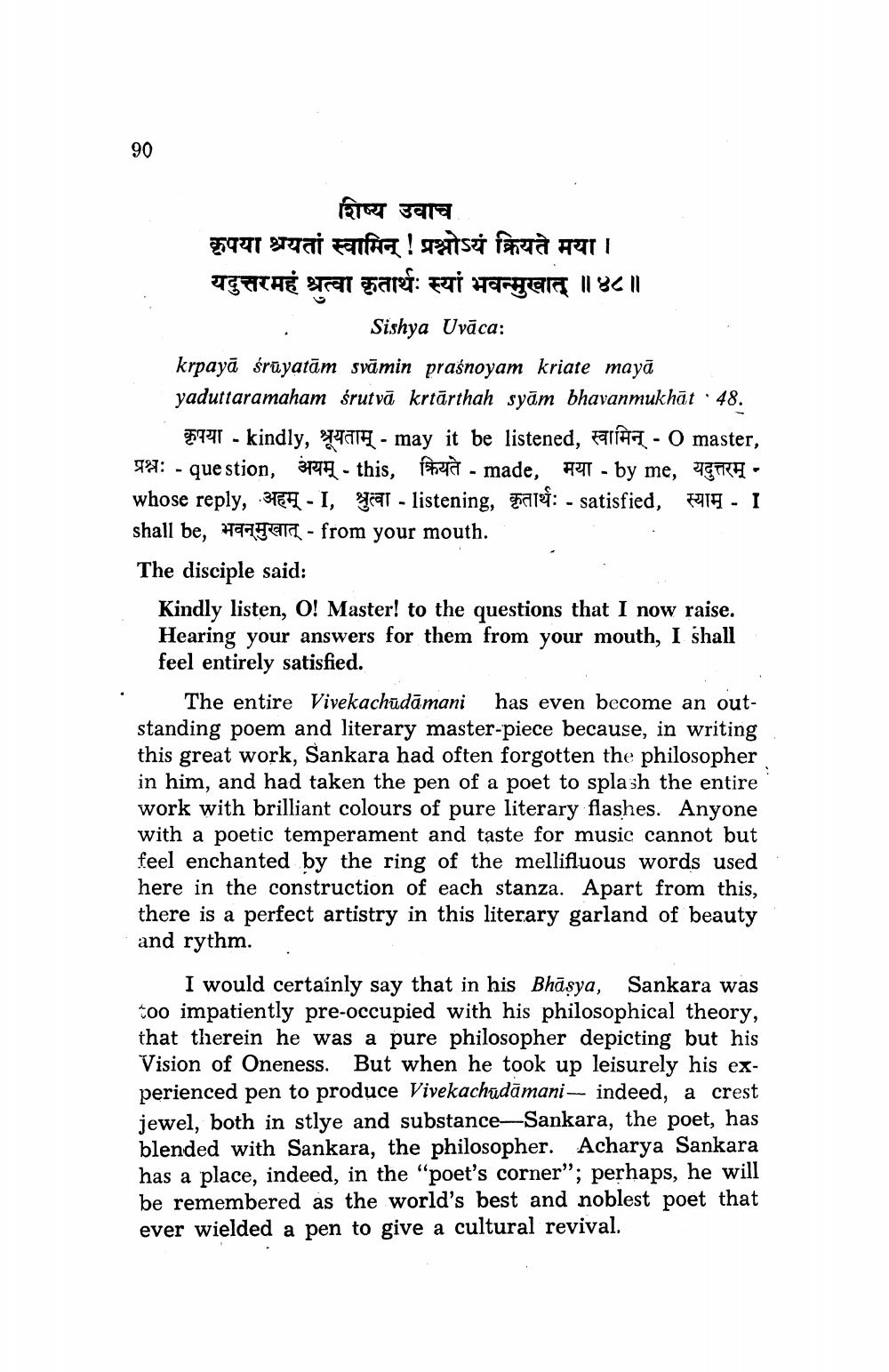________________
शिष्य उवाच कृपया श्रयतां स्वामिन् ! प्रश्नोऽयं क्रियते मया । यदुत्तरमहं श्रुत्वा कृतार्थः स्यां भवन्मुखात् ॥४८॥
Sishya Uvāca: krpayā śrūyatām svāmin praśnoyam kriate mayā yaduttaramaham śrutvā krtārthah syām bhavanmukhāt 48.
कृपया - kindly, श्रूयताम् - may it be listened, स्वामिन् - 0 master, प्रश्न: - question, अयम् - this, क्रियते - made, मया - by me, यदुत्तरम् - whose reply, अहम् - I, श्रुत्वा - listening, कृतार्थः - satisfied, स्याम - I shall be, Haryana - from your mouth. The disciple said:
Kindly listen, O! Master! to the questions that I now raise. Hearing your answers for them from your mouth, I shall feel entirely satisfied.
The entire Vivekachūdāmani has even become an outstanding poem and literary master-piece because, in writing this great work, Sankara had often forgotten the philosopher in him, and had taken the pen of a poet to splash the entire work with brilliant colours of pure literary flashes. Anyone with a poetic temperament and taste for music cannot but feel enchanted by the ring of the mellifluous words used here in the construction of each stanza. Apart from this, there is a perfect artistry in this literary garland of beauty and rythm.
4.
I would certainly say that in his Bhāsya, Sankara was too impatiently pre-occupied with his philosophical theory, that therein he was a pure philosopher depicting but his Vision of Oneness. But when he took up leisurely his experienced pen to produce Vivekachudāmani -- indeed, a crest jewel, both in stlye and substance-Sankara, the poet, has blended with Sankara, the philosopher. Acharya Sankara has a place, indeed, in the 'poet's corner"; perhaps, he will be remembered as the world's best and noblest poet that ever wielded a pen to give a cultural revival.




